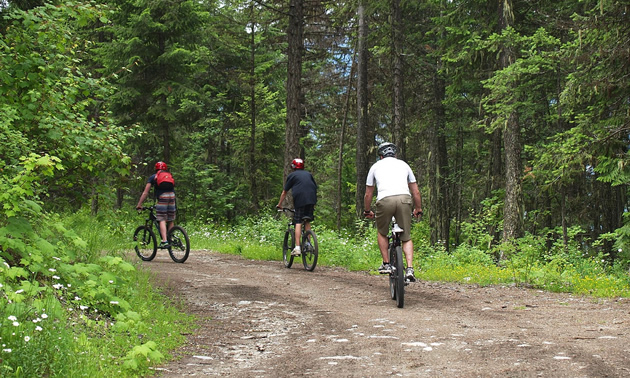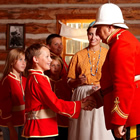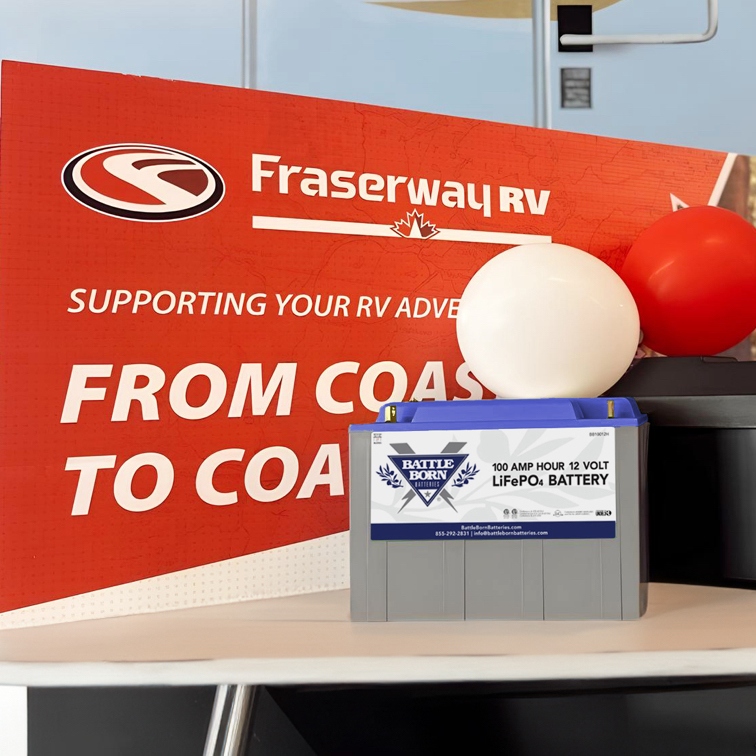Taking your teenagers camping
Connecting with your teenaged kids sometimes means you have to first disconnect them

Parents often have to compete with a full host of electronic gadgetry to get their teen’s attention these days. From cellphones to laptops, iPads and Xboxes, there always seems to be something plugged in that keeps teens from connecting with their families. So how does a parent get them to unplug?
For Daryll and Jennifer Farrar of Edmonton, Alberta, and Pamela and Steve Kritzer of Swift Current, Saskatchewan, the solution has been an easy one. They simply take them camping.
“With camping,” said Daryll, “the truth is, they always have a great time. Give them something to do, give them something fun, give them a sense of self-worth, and give them some of your time, and you won’t need to force them to put down the stuff. They’ll put it down willingly because they value that time with you.”
Darryl’s wife, Jennifer, said that time spent camping together is quality time.
“[It’s] time that’s not divided, because you’re unplugged too and you’re not running around trying to do a hundred things at once,” said Jennifer.
The Farrars have taken their daughter, Megan, and son, Peter—now 16 and 14 respectively—camping with them since they were toddlers, and they said that camping has always been an activity that has brought them closer together as a family.
“Any other time, having family time means them having to put something else aside, like TV or the computer, their phones or friends coming to the door,” said Daryll, “whereas camping lets you leave a whole bunch of that behind, and what’s left are the things we love to share. We all love a campfire. We love going for a walk. We love going for a bike ride. If we watch a movie, we watch it as a family, and if we play a game, we play it together. At home they’d be less inclined because there’s just so many other things to do.”
Daryll likens the experience to teenaged sensory deprivation.
“We take them from their comfort zone—their bedroom, their basement, their stuff—and we put them into a very small space where they’re kind of forced to be with us in a very close and personal way,” he said.
The Kritzers agree, saying that camping also allows their kids to reconnect with one another as siblings, and this helps build a stronger relationship between them.
At ages 15 and 13, Cole and Hannah Kritzer actually enjoy spending time with one another and are surprisingly close, said their parents.
“I can honestly say that I don’t know siblings that get along as well as these two kids do,” said Pamela. “We sometimes camp with other families with kids, but sometimes we camp up to a month where it’s just them. So they have to get along with one another because there’s no one else to hang out with, and they’ve had to grow used to relying on one another.”
Steve agreed.
“I really think that by not being able to hide in their electronics when they’re camping, they’ve really gotten to know one another,” said Steve, “to the point that now they honestly enjoy one another.”
To ensure that their kids aren’t just dragged along for the ride but are fully engaged and willing participants in all trips, both the Farrars and the Kritzers said they work hard to maintain a team-like atmosphere.
“Everything has to be done as a team,” said Steve. “When we arrive at our spot, everyone gets out and we’ve all got our jobs in terms of setting up camp. Even meals happen with everyone pulling together. That’s not a kind of teamwork we experience when we’re travelling somewhere in a plane or staying in a hotel.”
The team philosophy is also part of trip planning for the Farrars.
“We make sure to let them know how important their role is in the whole setup and takedown process,” said Daryll. “We let them have a hand in choosing where we go and in helping to plan the menu. By no means does this mean they run the show, but their thoughts and ideas are valued by Jennifer and me, and we make sure they know it.”
While both couples say their kids will still utilize their electronic devices every now and then, they agree that camping soon has them weaned and looking forward to other activities, whether it’s a hike along a river, an adventurous bike ride or a game of bocce in a nearby open field.
“The only reason Cole even takes his cellphone now is so that he can get the text from me saying there’s food on the table,” said Pamela.
“There’s so many different things to do,” said Steve, “that you don’t have to actually say to them, ‘put down the iPod.’ Just put a great big lake in front of them and they’re only too happy to do it.”
As to what age kids should be when you start to take them camping, both couples agree it’s best to start them as young as possible.
“Start them out young, when they’re open to buying into the idea,” said Daryll. “If you start them when they’re older, it might be a more difficult sell, because teenagers are always reluctant to try something until you prove to them that it’s fun.”
Pamela said their children were babies when they first went camping.
“We’ve been camping with our kids since they were as young as six months,” said Pamela, “and we’ve never looked back. It’s been awesome. But honestly, I don’t think it’s ever too late to start.”
Camping together, said both couples, will not only help you to build a stronger connection with your teens and connect them to a world beyond their electronics, it may also help them lay that same foundation for their own kids one day.
“I am secretly dreading the day when our kids don’t camp with us,” said Daryll. “But if we’ve done it right, that period should be very short—and only because they are busy starting a family of their own, who hopefully will one day join us.”








